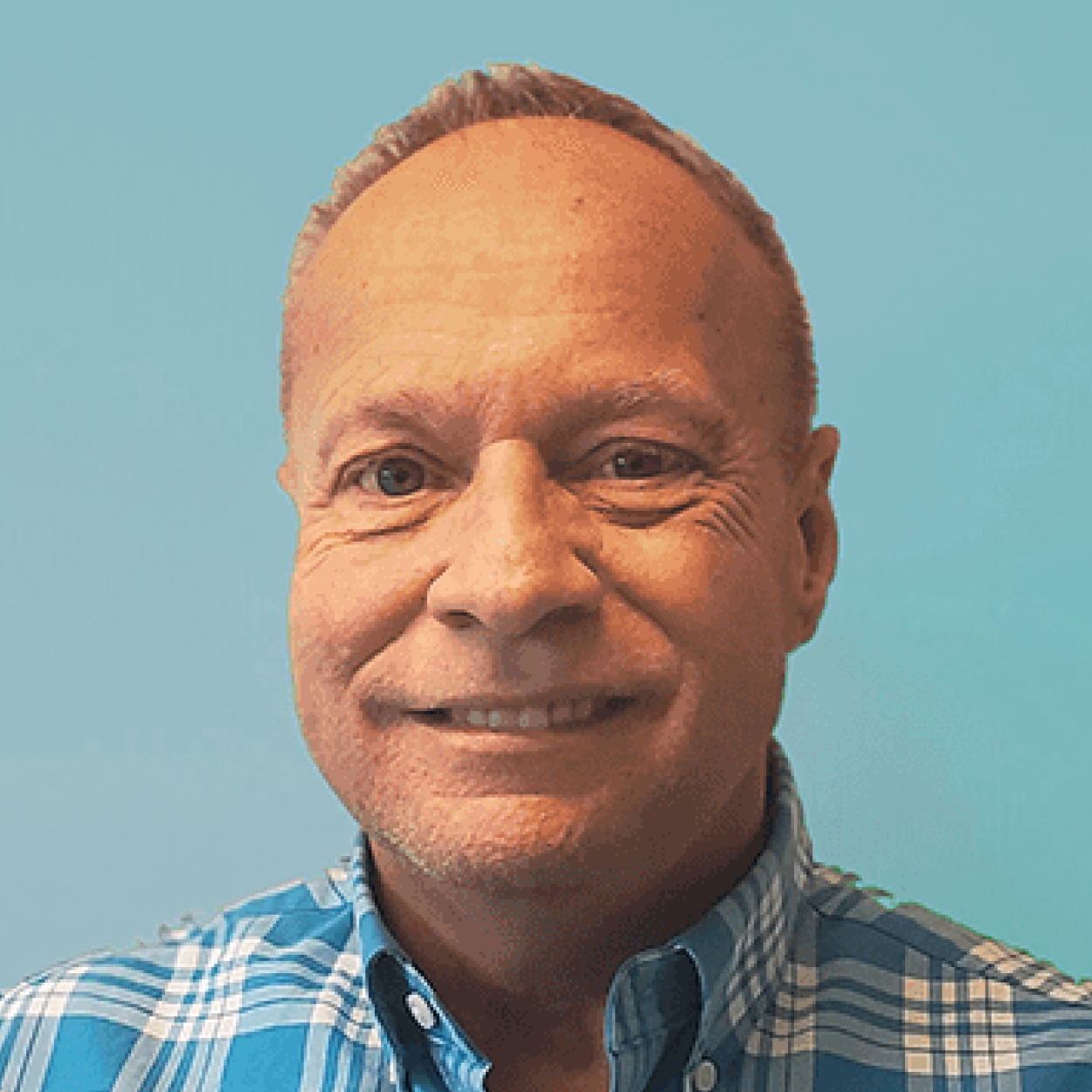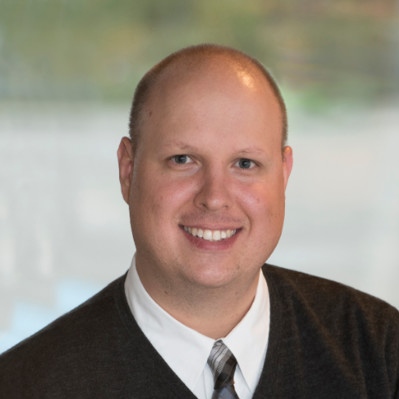An Interview with David Thomas
An Interview with David Thomas
By: Rob Kirsic
January 2024
 David Thomas has been involved in policy development and training for over 30 years.
David Thomas has been involved in policy development and training for over 30 years.
Many of you know David from past years employed by OMSSA as a Lead Trainer in their Social Assistance Training, commencing from 1994, and more recent years as a Lead Trainer for the SAIL Curriculum and currently with OW Directive Training and Life Stabilization.
David is involved with various Leadership Initiatives providing skills and competencies designed to improve service quality, build organizational capacity, enhance service system management, and further service integration. David’s role in supporting Integration includes managing multiple projects related to implementation and delivery of streamlined services for clients and staff alike.
David dedicated his career to training and policy advice, his networking with our members has continued to build superior working relationships including several speaking engagements at past OMSSA conferences, most recently on Life Stabilization at the May 2023 OMSSA Exchange Conference. David is also working with OMSSA Staff on the development and framework for the OMSSA Municipal Human Services Certificate Program.
He is also the recipient of the 2023 OMSSA Champion of Human Services Award. OMSSA sat down with David Thomas for an interview to discuss his work as a facilitator and his thoughts on social assistance in Ontario.
This interview has been edited and condensed.
OMSSA: Social assistance delivery between more than one level of government brings challenges and opportunities, especially as governments and priorities change over time. In your experience, what should human services staff know and think about when it comes to the relationship between the province and municipalities as it relates to the delivery of social assistance?
David Thomas (DT): I am really, really humbled by the award and am at a loss for words in terms of the award, so I was so happy to hear that news.

A simple example I think about is when people reapply for assistance after six months. That is a reapplication, but you can continue to use the previous application or you can choose to do the reapplication under Directive 2.2. If the information is less than a year old that Directive says you may use the old information, but many local practices do not approve that and a full application is done which is not very efficient. Why is it that you can't accept the old application? There's one little caveat by the Ministry in Directive 2.2 that says that the Administrator/Director could accept the previous application provided there is not a major change in circumstances. Basically any new person added to the application that is an adult and needs to sign it.
I don't think there's been a lot of training around what is a major change in circumstances. Why would you need that application completed when it is the same questions? If it is another adult coming on the benefit unit, then well, of course, you need the adult’s signatures. But when I ask staff why they do it, they say I don't really know. I think it's the way we've always done business. So when you have an application that is in month seven to month 12, then ask yourself why is it that we can't simplify this process?
Verification on outdated policy or habits of a staff person is really the biggest challenge that we have, and it requires us to let go of old habits and embrace modernized change. Are there really that many inefficiencies with the new intake process? Have we examined and identified what is outdated? Has the Intake and Benefits Administration Unit (IBAU) streamlined some simplification that we are not implementing or understanding? It’s so important to think about letting go of make work projects where we are familiar with old processes and create new high value activities that are opportunities for advancement in areas of enhancing people’s lives.
Our employment outcomes are challenged in many areas and since we are funded for success we have to meet our targets and our performance. And yet we still have this vulnerable group of people who continuously rely on reapplications for services. And they are continuously a vulnerable group who can't sustain employment.
We have people with unidentified disability, hidden disabilities, education barriers and a lot of mental health issues happening. Where the healthcare system that safety net just doesn't seem to be there working for them. So where do they come? To our safety net.
So I think we really need to break that down and ask ourselves why that is the case.
OMSSA: Based on your extensive experience, what are some developments/trends Members should look out for as they transition to onboarding new Service Managers or manage Social Assistance within the Employment Services Transformation framework?
DT: A single person gets $733 a month, the low income cut off is somewhere about $23,000 – $24,000, so they are way below the LICO cut off. And then COVID really changed things. I believe we need to continue the good work of trying to stabilize people's life circumstances.

Many places that I have done training, because they are municipalities, also have a tax department. Some staff go and navigate the tax department software on who owns the house and whether that house can be rented out to our clients. And I've had many case workers and first-line supervisors over the years say that they have denied assistance to people who are not renting from the homeowner. How is it that we've decided that? Many municipalities have gotten rid of that software as it really is a privacy breach and is for the sole purpose of a tax department not social services.
We need to really work with our providers, our doctors, and our providers of mental health to be able to streamline services. I think it is fair to say at least a good 90 per cent of clients have mental health issues, be it a from trauma, life circumstances, or mental health issues that are part of their genetic endowment.
We have to think about tax credits as well and be mindful that it's just not enough to refer to ODSP. When you have somebody that's disabled how can you bridge things like the Disability Tax Credit? The tax credit is an exempt income source. It can go retroactive for up to ten years. For many of our clients, if you are referring them to ODSP, somebody should be working with them to get them the Disability Tax Credit. If family and friends contribute to it, it is an exempt asset under Ontario Works (OW) eligibility.
You never know who they may have in the future that could help them contribute to a Registered Disability Savings Plan that requires obviously other items that are barriers for the homeless, like identification. You must have ID to do your taxes, so that would require providers to have ID clinics as well as income tax clinics. You are going to lose your ID. You go to a shelter or hostel, it will be lost. Even for one night, people can lose their shoes, their belongings, everything that they hold important, including their ID.
I think that we need to be aware and do concurrent case planning around identification, getting taxes done, referring to ODSP, but helping people to get the disability tax credit and thinking of a way where we always have a mechanism to help them hold on to their identification.
OMSSA: This issue pops up from time to time, and the Senate of Canada is currently studying this issue, but do you see a universal basic income helping services users in addition to what they receive through Ontario Works and/or Ontario Disability Support Payments?

A lot of us know that Senator Hugh Segal advocated for several years about a basic income program or guaranteed annual income program. The program was meant to be a top-up for people who were beneath the poverty line that are trying their best to break that poverty line despite precarious employment and precarious life.
Canada pays nothing equivalent to the poverty line. In fact, it's about 40 percent below the poverty line, according to the CD Howe Institute (source: https://www.cdhowe.org/sites/default/files/2021-12/Commentary_465_0.pdf), when they examined what people get for assistance across the country, this top-up that we have talked about, and thought that should be there, was something that we can contrast comparatively to the guaranteed annual income system that was introduced in 1975.
But the poor are pigeonholed in an area where we think they are not deserving, or they are lazy, or they are not as entitled to it as a senior citizen would be. Hugh Segal said the notion that we can't afford this program is like saying we are not prepared to fight a disease which destroys the fiber of our society. So why shouldn't we look at it? Because the fiber of our society is challenged. You see on the streets.
I'm currently in Los Angeles, and I have been coming here since I was a kid. And, while I always saw more homelessness here as a kid. I always thought back home, we didn't see it. Well, now it's very real at home, and it is really a lot colder than LA. What we see at home is probably five times that in a warmer climate where people can live outside.
Crime is going to increase because of homelessness. It's not that people are violent. It's not that people are stigmatized as being criminals. It's survival. We see homelessness everywhere now and it's just gone and gotten out of control with encampments because people cannot afford housing, sharing accommodation with others, people staying in relationships just because they can't afford to live on their own, physical or sexual violence, financial control or violence because they're vulnerable, and we have to do something about it as a society.
It is no longer the people who typically look homeless, and hygiene issues increase because they can’t afford to wash their clothes, or they were on the street and they didn't have a place to do it. I see people that look very middle class and probably have an apartment, a couple kids and a family at home, begging on the streets for help because of high accommodation and high food costs.
Think about the cost of food and the drain on the food bank system. It is more working individuals who are relying on them. People can't afford hygiene related items. Tuesdays in Kingston is one example. It's very real for women. It's a day that all the grocery stores call Tampon Tuesday, (source: https://www.unitedwaykfla.ca/tampontuesday/) and instead of contributing to the food bank with food, they ask people to give feminine hygiene products for people because that's costly. We must give people dignity and respect and think about those costs and help out where we can.
OMSSA: If you could design a new social assistance program for Ontario, what would that look like?
DT: I think we need to simplify things. I think we make a lot of make work projects just to keep ourselves busy with old systems rather than looking at the challenges and examining a new way of doing business.
I think that what we should do with OW is similar to what is done with rent-geared-to-income in social housing and what we do with Children’s Services subsidies. Get rid of all the paperwork, and needs test based on last year's income tax. We issue transitional child benefits while we help somebody complete their income tax to get them tax benefits, why can we not do a similar transition benefit for OW pending income tax completion?

For years, I have examined the culture of how our organizations treat clients to understand how they treat each other. And when I see CMSMs and DSSABs that have so much respect and trust for their clients, that's a healthy organization and I believe the organization trusts their staff. Clearly when the trust everywhere is amiss, I question does the organization trust Its staff. Behaviours and actions at the top ripple down to first-line staff.
OMSSA: Is there anything else you would like to say that I have not asked about?
DT: When I think about the devolution of services from the days of Mike Harris in 1997 and 1998. We saw cuts to social assistance rates of 21.6 per cent in 1998. Roads, water, sewers, police, ambulance, it all became the responsibility of municipalities. With social housing, the province dumped old Ontario housing projects with beat up, worn-out infrastructure onto the municipalities to pay for in addition to rate cutbacks to clients.
At the time the province was suggesting people are defrauding the system. They had zero tolerance for fraud. You can murder somebody and you may be out in 10 to 20 years, or on parole, but if you defraud social assistance once, you never get assistance again in Ontario. The government’s defense was to prove that recipients could survive on newer and lower rates, it was dubbed the welfare diet, (source: https://www.thestar.com/news/gta/twenty-five-years-after-welfare-diet-debacle-social-assistance-still-hasn-t-recovered-from-mike/article_31ff0e0f-ce31-509a-8a99-9f3ac23db784.html) by thinking people could live off a $90-a-month grocery budget. But you know what the news on welfare fraud is? There is no news, its like other monitoring programs, at about 10% who are dishonest, same goes for Income Tax Submissions and Insurance Benefit Claims based on honest submissions. For those that are not honest, there should be some penalties, and those penalties should be serious. But you shouldn't be asking for verification and proof when 90 percent of recipients are telling the truth.
One of OMSSA’s Board Members, Polly Smith, states this in her bio: "those of us who have witnessed the disintegration of the social safety net and who are nearing the end of our careers have the rare opportunity to be fearless in our advocacy roles. While we need to keep the conversations going, the fact is our communities are suffering because of years of bad policy and this has to change. Equity has to be authentic and extended to all people living in poverty and homelessness."
She says what a lot of us are thinking and don't have the nerve to say. So I applaud Polly for stating this and saying it so candidly. It really resonated with me.
OMSSA: Thank you, David.
About the Author

Rob Kirsic is the Communications and Member Engagement Manager with OMSSA. Rob started with OMSSA in 2021 and has over 15 years of communications and public relations experience in the private, public, and not-for-profit sectors.
Blog categories: Interview, Leadership, Human Services, Human Services Delivery, Social Assistance, Ontario Works, ODSP, Employment Services Transformation, Universal Basic Income